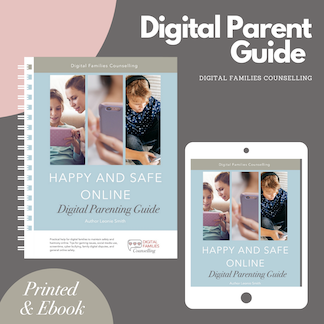How To Protect A Child On Apples Safari Browser
Apples Safari Browser
Is Your Child Using Safari To Search The Web?
Protection On Devices Used At Home
With school laptops and iPads being introduced in early primary, all schools are doing all they can to filter the internet within school grounds. However, too many parents need to be aware of the importance of enabling filters and parental controls on any device their child uses when not at school. Without parental controls or filters on smartphones and other devices, your child will likely be exposed to upsetting adult content or violence via an app or a web browser search feature.
Parents must do all they can to prevent harm from coming to their children online and offline. Some parents have told me they think there is nothing they can do to prevent a child from seeing porn, so they wonder if there is any point in trying to block it everywhere. I feel that's a bit like giving up on child safety.
There are many things you can do to help with blocking adult content. Safe search settings are like putting a seat belt on your child. It isn't fail-safe, but it can certainly help with accidental exposure. Unfortunately there is always a chance that your child may see porn on another child's device. But the more parents enable these safe filters, the less likely all children will see some form of violence or explicit content. Protecting our children on the internet really does take a village.
Apple Safari Browser
Apple's Safari web browser comes pre-loaded with every Apple device. As a parent, you may be concerned about the potential risks of your child accidentally encountering adult content while browsing the internet on Safari. Children may inadvertently stumble upon graphic or inappropriate content without proper supervision or parental controls enabled. This can cause confusion, distress or even long-term harm to their mental and emotional well-being. It is essential to be aware of the risks and take steps to protect children from this type of content. This can be done by either disabling Safari via the "Screentime" parental controls or monitoring their browsing activity and having open and honest conversations with them about internet safety and the risks of viewing adult content.
On Apple devices, Safari is the proprietary app for searching the web. It may be set to Google for search. There are several ways to help protect a child while using the Safari browser on a device such as an iPhone, iPad, or Mac P.C:
Note: If parents allow other browsers, for example, Chrome, it is crucial that Chrome is also set to block adult content.
Important: Parental control filters are NOT 100% safe. Sometimes adult content will get through, so always maintain supervision and give education on what your child should do if they see something adult on their devices. Turning off access to Safari for children under 10 years of age is recommended.
Top Tips For Web Browser Safety
Enable the Screentime Restrictions to prevent your child from accessing inappropriate content or changing the settings. These can be found in the "Screentime" settings via General Settings on any Apple device.
Use the "Limit Adult Websites" feature in the iOS "Screentime" restrictions to block access to adult websites.
If search is set to use Google, set restricted mode in settings to block inappropriate search results. Go to https://www.google.com.au/preferences via the browser.
Monitor the device usage and browsing history with your child and explain the risks children could face when browsing the internet.
Keep all devices in family common rooms so you can supervise your child online and how they are behaving whilst they are engaging with their device.
Teaching children about internet safety, such as not sharing personal information online and avoiding talking to strangers on the internet is vital for safety.
Create a family device use agreement on device use, including where when and how the device is used. Brainstorming with your child about this is important so that a child feels they have a say in what happens.
Ensure that children can confide in you about anything they see online, having a “Safe Harbour” is important for parent and child to learn together about the online world.
See more instructions about internet safety in my Parent Guide, "Happy And Safe Online."



